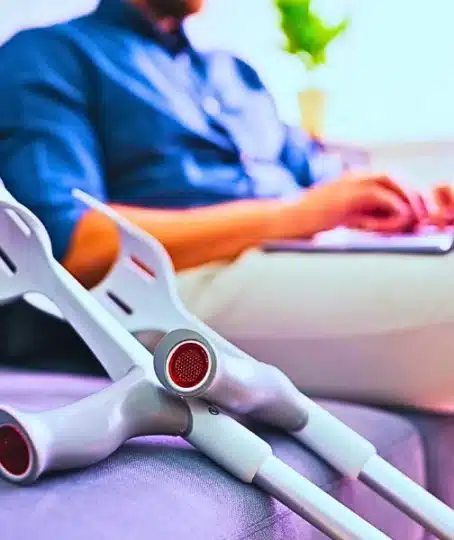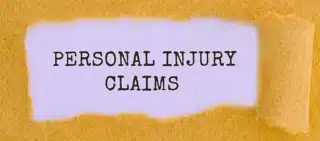
When a Dog Attacks Again and Again If dogs attack once, it’s alarming. When they attack five times, it’s no...


Can a Personal Injury Claim Be Reopened? This question arises frequently among people who have settled their cases. Generally, you cannot reopen the case once you sign a settlement agreement for a car accident claim. However, there are situations where it may be possible to reopen a claim. These include discovering new evidence, a mistake in procedure, a breach of contract, or fraudulent behavior. A car accident attorney can assess your situation and advise on your options for pursuing additional compensation after your claim has been closed.
Contact the Chicago car accident lawyers at Strong Law Offices at (309) 688-5297 to discuss your legal rights and options.

The requirements for opening a personal injury claim typically depend on specific circumstances and jurisdictional rules. Below are the general requirements and scenarios that may allow a claim to be reopened:
New evidence could lead to the reopening of a lawsuit, particularly if it can alter the original case outcome. For this evidence to be considered, it must have existed at the time of the initial settlement offer but discovered only later.
If new information surfaces about the cause of your personal injury, it may, but not always, justify reopening your personal injury case. There are often criteria regarding what type of fresh evidence is sufficient for this purpose. Typically, new evidence must genuinely be new, in that neither you nor your attorney had any reasonable way of knowing it was available when you first submitted your claim.
Recognizing that your injuries are more serious than you initially believed does not constitute the kind of evidence needed to reopen a personal injury case. This highlights the importance of obtaining high-quality, well-documented medical treatment after an injury. It also underscores the reason to avoid accepting premature or insufficient settlement offers from insurance companies soon after an accident, as the full extent of your injuries may not yet be clear.
Data from the Federal Trade Commission (FTC) indicates that in the first quarter of 2023, Illinois ranked as having the 10th highest fraud rate. It's possible to reopen a case if a settlement was reached based on fraudulent information or misrepresentation by any party involved.
Lawsuits involving fraud or misrepresentation could be eligible for additional investigation and discussions. If any party, be it the plaintiff, defendant, or insurance company, suspects that the case included false claims or deceit, they can request the lawsuit be reopened.
Examples of fraud include falsifying documents, committing perjury, hiding evidence, or providing false testimony from expert witnesses.
In a personal injury case, if both parties make the same error regarding a fact—such as the true nature of the injuries—it could provide grounds for reopening a settled case.
Settlement agreements typically rely on the injured party's condition, the likelihood of recovery, and the total damages involved. For instance, if both sides believed the injury was minor and temporary, yet it later turned out to be a serious permanent disability that neither anticipated, the settlement could be contested.
Generally, waiting until you reach maximum medical improvement (MMI) before accepting a settlement offer is advisable. MMI is the stage at which your condition has stabilized, and you no longer need urgent medical care, allowing for an accurate assessment of fair compensation based on your current treatment needs.
If you settle before reaching MMI, you risk underestimating future damages that may surpass the initial offer. However, simply undervaluing damages or settling prematurely isn't sufficient; the mistake must be mutual and involve a key fact of the case.
Resolving a personal injury case requires a substantial amount of paperwork. During this process, mistakes that can affect your settlement might occur. These errors could include an incorrect settlement amount, a misrepresentation of injuries, or typos in names. In many instances, you can rectify these mistakes without needing to completely reopen your case, although there may be circumstances that necessitate reopening your claim.
A personal injury settlement can be contested if you accepted it due to duress or undue influence. Laws prohibit using threats or manipulation to coerce someone into accepting a settlement and signing a release of liability agreement.
A lawsuit can be reopened if the defendant does not meet their contractual obligations. For instance, if the defendant neglects to pay for medical expenses and lost wages as outlined in the contract's timeline, the lawsuit may be rendered invalid. In this situation, the plaintiff may have the right to reopen the case and request additional compensation for the inconvenience and delays caused by the late payments.
If you can reopen a personal injury claim after reaching a settlement, there are steps you will need to follow:
To begin, it’s important to consult and hire a personal injury lawyer to manage your case. Whether you can successfully reopen your case in Illinois depends on the specific details of your situation. Obtaining legal assistance at this stage is crucial. If your case involves a motor vehicle accident, for instance, an experienced car accident attorney will examine the terms of your settlement agreement, the insurance policy, and other relevant components of your case to determine if reopening is a viable option. Even if reopening the claim isn’t possible, your attorney will look into your accident further to identify other possible legal pathways for compensation.
Make sure you have all the documentation related to your initial case, such as medical records, witness statements, and any communication with your attorney. If there is new evidence available, gather and sort this information. This could include anything from updated medical diagnoses to more eyewitness accounts.
After determining the reasons for reopening your car accident case and gathering the required evidence to support your claims, you can proceed to file a motion. It’s essential to submit this motion to the court and provide a copy to the at-fault party before the scheduled court date.
When you reopen your case, you'll need to go through the claims process again, where an attorney can be invaluable. During this phase, you may negotiate with defendants and insurance companies for a fair settlement.
Handling the claims process alone can jeopardize your case, especially if you're not familiar with how defendants often minimize or deny claims. Insurers might offer lower initial settlements, which could lead you to unintentionally release your right to full compensation. Having an attorney can help guard against low offers and other tactics.
The biggest hurdle will likely be demonstrating grounds for bringing the case back to court or overturning the original settlement. Reopening a case is challenging, and simply claiming that the settlement terms were unfair is typically insufficient.
For example, if you miscalculated your damages, injuries, or losses, that wouldn’t be considered a valid reason to reopen a case. Valid reasons usually revolve around contractual disputes rather than proving fault.
You cannot reopen a personal injury case without robust legal arguments and new evidence. A lawsuit can only be reopened post-settlement with court approval, which is not an easy feat and generally requires substantial evidence. Therefore, you may face challenges both in obtaining sufficient evidence, and convincing the court. You also have time limits on how long a personal injury claim can stay open, and you need to ensure that you do not lose your claim by exceeding these limits.
A personal injury lawyer can carefully assess your situation, including the settlement agreement and any relevant exceptions, and will gather evidence to indicate fraud, errors, or other factors necessary to reopen the case. Your injuries, medical treatments, and related expenses may undergo reassessment and scrutiny.
Although reopening a car accident case and establishing valid reasons for doing so can be difficult and may take a considerable amount of time, there are often other options available for seeking additional compensation that could be faster, simpler, and more advantageous. You might have the opportunity to file separate claims in certain situations:
If you've been involved in an accident in which multiple parties share responsibility for your injuries, you have the option to file a distinct claim against another party that is liable, seeking additional compensation without the need to reopen your original settlement. This approach allows you to receive increased damages, even if you've already come to an agreement with the insurance company of the first defendant. In Chicago, aside from a negligent driver responsible for a car accident, personal injury law covers other entities that might be held accountable, including:
For instance, if your injuries stemmed from the negligence of another driver, it’s possible that a defect in the vehicle, like faulty brakes, also played a role in your injuries. Demonstrating that a vehicle was defective can allow you to hold the manufacturer or part-maker responsible for your damages as well.
Typically, reaching a settlement and signing a release of liability with one insurance provider does not prevent you from pursuing claims against other parties at fault, nor does it stop you from negotiating settlements with their insurers. However, it's essential to review the terms of the release carefully. Some releases contain language that might bar victims from pursuing other claims associated with the accident. Insurers often use such language to shield themselves and their insured parties from having to be held liable for further losses.
In these cases, consulting a car accident attorney can help you identify if multiple parties are responsible and assist you in obtaining damages from each of them.
While it’s difficult to reopen an insurance claim after settlement, you have the option to file a new legal claim against the insurance company based on bad faith, which does not involve reopening your original claim. Under Illinois law, insurers are obligated to process car accident claims in good faith. If you can demonstrate that an insurer acted in bad faith, you may pursue legal action and seek compensation for the financial losses resulting from the mishandling of your claim.
Examples of bad faith practices by insurance companies include harassment, pressuring you to accept a low settlement, failure to negotiate a fair settlement, unnecessary delays in investigating or processing your claim, deliberately misrepresenting the details of your accident or your policyholder’s coverage, and inadequate or slow communication.
To pursue your case, you will need to gather evidence of bad faith. If you can prove that the insurer acted improperly, you can take legal action to seek compensation for the financial damages stemming from how your claim was managed.
Strong Law Offices can address your inquiries, review the details of your case, and help you understand your rights along with all avenues for financial recovery. Contact us for guidance on reopening your personal injury claim.

When a Dog Attacks Again and Again If dogs attack once, it’s alarming. When they attack five times, it’s no...

Overview of the Personal Injury Claim Process in Illinois No one expects to suffer an injury or get involved in...

Exploring Caps on Damages in Illinois Personal Injury Cases Illinois does not have laws capping damages in successful personal injury...